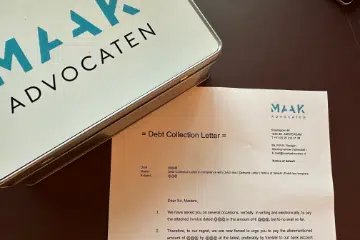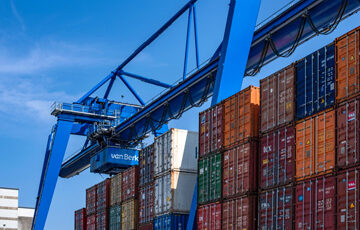
When it comes to navigating the complexities of debt collection in the Netherlands, hiring a debt collection law firm is essential. Whether you are a small business or a multinational corporation, understanding Dutch debt collection laws and having access to expert legal advice can significantly increase your chances of successful debt recovery. From assessing your debt collection needs to enforce foreign judgments, this essential guide will provide you with valuable insights and practical strategies to ensure prompt payment and financial stability. If you want to safeguard your business interests and maximize your chances of successful debt recovery, keep reading to discover the key factors to consider when hiring a debt collection law firm in the Netherlands.
Key Takeaways
- Thoroughly evaluate outstanding debts and assess chances of recovery before proceeding with debt collection actions.
- Seek legal assistance from a Dutch law firm to ensure compliance with local laws and navigate the debt collection procedures effectively.
- Hiring a debt collection law firm in the Netherlands can provide tailored solutions and increase the chances of a favorable outcome.
- Legal assistance is crucial to ensure that debt collection actions are conducted within the boundaries of the law and protect the creditor’s interests.
Assessing Your Debt Collection Needs in Holland
Assessing your debt collection needs requires a thorough evaluation of outstanding debts and a strategic approach to recovery. When dealing with debt collection cases in the Netherlands, it is important to seek legal assistance from a Dutch law firm that specializes in debt collection. The Dutch legal system provides a structured framework for debt collection proceedings, ensuring that the rights of both debtors and creditors are protected.
To effectively assess your debt collection needs, it is crucial to identify the outstanding debts and evaluate the chances of recovery. This includes determining the amount owed, the assets available for recovery, and any potential risks or obstacles that may hinder the collection efforts. A Dutch law firm experienced in debt collection can assist you in gathering the necessary documentation and understanding the general terms and conditions for debt collection in the Netherlands.
Consultation with debt collection lawyers can also provide valuable insights into the debt collection process and the legal options available to you. They can advise you on the best course of action, whether that involves negotiating with the debtor, filing a lawsuit in the District Court, or enforcing foreign judgments.
Understanding Dutch Debt Collection Laws
Dutch debt collection laws encompass a comprehensive set of legal requirements, regulations, and limitations that govern the debt recovery process in the Netherlands. Understanding these laws is crucial for effective debt collection in the country. Debt collection agencies and law firms in the Netherlands need to be well-versed in the risks, limitations of communication, and required documentation in order to navigate the debt recovery process successfully.
One important aspect of Dutch debt collection laws is the inclusion of limitation periods. Debt collection agencies must be knowledgeable about these periods to ensure that they initiate collection processes within the appropriate timeframe. Additionally, hiring a local debt collection agency or law firm in the Netherlands can provide an advantage in debt recovery efforts. These agencies possess knowledge of local laws, language, and cultural nuances, which can facilitate more effective communication and negotiation with debtors.
Debt collection lawyers in the Netherlands play a crucial role in the debt recovery process. They are proficient in handling legal proceedings and have the expertise to initiate collection processes and seize debtors’ assets with judicial consent. By working with Dutch lawyers experienced in debt collection, individuals and businesses can maximize their chances of successfully recovering outstanding debts.
Role of a Dutch Debt Collection Law Firm
A debt collection law firm plays a crucial role in assisting businesses with the recovery of unpaid invoices and providing guidance on effective recovery methods. Hiring a debt collection law firm is important for businesses facing difficulties in recovering their debts. Here is a list of the important roles a debt collection law firm plays:
- Initiation of Legal Proceedings: Debt collection law firms have a comprehensive understanding of the debt collection process and can guide businesses through the legal procedures involved in recovering unpaid invoices. They assist in filing lawsuits and representing businesses in court if necessary.
- Tailored Approach: A debt collection law firm takes into account the specific conditions of each case and provides customized solutions for debt recovery. They employ effective strategies such as communication, arbitration, and mediation to achieve the best possible outcomes for their clients.
- Compliance with Local Laws: Debt collection law firms, staffed by Dutch lawyers, ensure that businesses are in compliance with the legal requirements of debt collection in the Netherlands. They have a thorough understanding of the legal framework and can provide valuable legal assistance to businesses.
- Protection of Business Interests: By engaging a debt collection law firm, businesses are protected from potential risks and disputes arising from unpaid invoices. These firms promote a culture of prompt payment and financial stability, safeguarding the interests of their clients and minimizing the impact of non-payment on their commercial contracts.
Pre-Judgment Attachment Process in the Netherlands
The pre-judgment attachment process is a crucial tool used by debt collection law firms to secure assets and strengthen the creditor’s position in the pursuit of debt recovery. This process allows creditors to take legal action to attach the debtor’s assets before a court judgment is made. By doing so, it ensures that the debtor’s assets are available for compensation once a court ruling is passed in favor of the creditor.
The pre-judgment attachment process in the Netherlands is governed by specific legal provisions, and it requires the expertise of a debt collection law firm or an attorney specializing in debt recovery. These professionals can provide the necessary legal assistance and guidance throughout the attachment process.
The pre-judgment attachment process is an effective way for creditors to protect their interests and improve the chances of successful debt recovery. By working with a debt collection law firm or attorney, creditors can leverage this legal tool to ensure the debtor’s accountability and increase the likelihood of recovering the owed amount.
Enforcing Foreign Judgments in the Netherlands
To further navigate the complexities of debt collection in the Netherlands, it is essential to understand the process of enforcing foreign judgments within the country. Here are some key points to consider:
- Certified copy and certificate: Enforcing foreign judgments in the Netherlands requires a certified copy of the judgment and a certificate stating its enforceable nature. These documents are crucial for initiating the enforcement process.
- Recognition and enforcement of EU judgments: The Netherlands, as an EU member state, recognizes and enforces EU judgments without additional proceedings. This streamlined process saves time and effort for parties involved in debt collection.
- Limitation period: The enforcement of a foreign judgment in the Netherlands can have a limitation period of twenty years. It is important to take this into account when pursuing debt collection actions.
- European Small Claims Process: For foreign claims up to €5,000 by citizens of EU member states, the European Small Claims Process can be utilized. This simplified procedure provides a cost-effective and efficient way to resolve smaller debt collection matters.
When it comes to enforcing foreign judgments in the Netherlands, seeking the assistance of a reputable debt collection law firm or attorney in the Netherlands is highly recommended. They can provide exceptional legal services, navigate the debt collection procedures, and offer tailored solutions to ensure successful enforcement.
Conclusion
In conclusion, hiring a debt collection law firm in the Netherlands is essential for businesses seeking effective debt recovery. These firms provide expertise in communication, arbitration, and mediation to ensure compliance with local laws and fair resolutions. They also offer strategies for successful debt recovery and can employ the pre-judgment attachment process to secure debtor’s assets. By understanding Dutch debt collection laws and utilizing the services of a debt collection law firm, businesses can protect themselves and promote financial stability.


